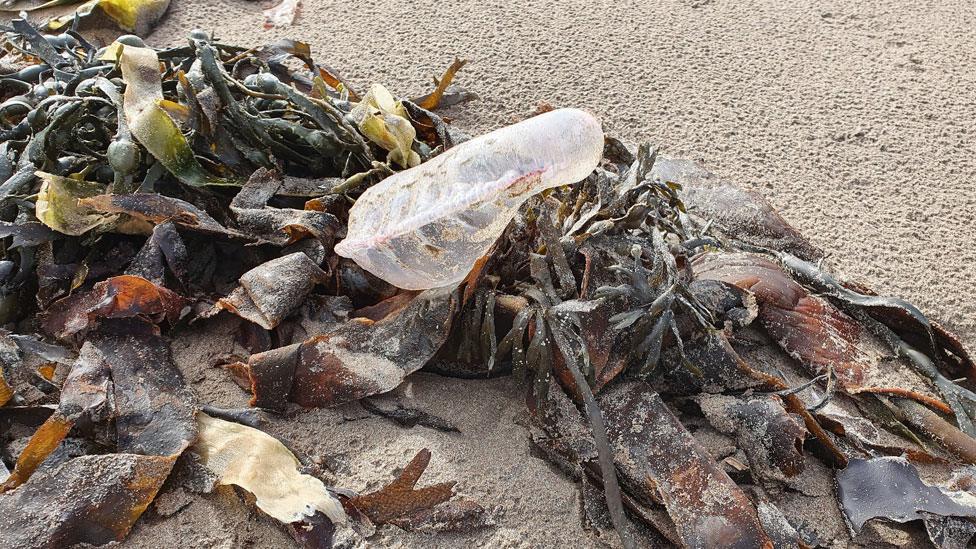Portuguese man o' war warning for Pembrokeshire beaches
- Published

Portuguese man o' war have washed up on West Angle beach
People are being warned to be careful on beaches after sightings of stinging jellyfish-like creatures.
Atlantic Portuguese man o' war have been washed up in Freshwater East and West, Newgale, Amroth and Angle in Pembrokeshire.
The creatures, which resemble jellyfish but are a species of siphonophore, cause painful stings if people come in contact with their tentacles.
The coastguard has asked for any sightings to be reported to them.
Similar sightings have been reported on beaches in Cornwall and Ireland.
It is thought the recent has brought more of the creatures to the Welsh coastline.
Freshwater East Coast Care Group, which has been monitoring numbers at Freshwater beach, said they had collected about 60 of the creatures so far.
Pembrokeshire Coast National Park warned people not to touch them, not to walk barefoot on the beach and to keep dogs away.
"If you or your dog are stung and experience severe or lasting pain seek medical or veterinary advice immediately," it said.
What is a Portuguese man o' war?
The creatures, whose scientific name is Physalia physalis, look like jellyfish but are not classed as such because what looks like one organism is actually a colony of organisms, known as polyps, working together.
True jellyfish are single organisms.
The man o' war are carnivorous invertebrates and have a gas-filled bladder which floats above the water, and tentacles which deliver their sting.
The tentacles can grown up to 165ft (50m) in length, although 30ft (9m) is more usual.
Source: National Geographic
Penny Harris, a sports coach who lives near West Angle beach, said the numbers sighted were keeping her out of the water at present.
"I do a lot of open water swimming but I'm not at the moment because I don't want to get stung," she told ǵüµÇ¨û§ News.
"I'm waiting until the sightings have dropped off.
"If it was one or two or even half a dozen I'd go in, but there's about 30 a day in Freshwater West."
- Published2 October 2017
- Published18 August 2011